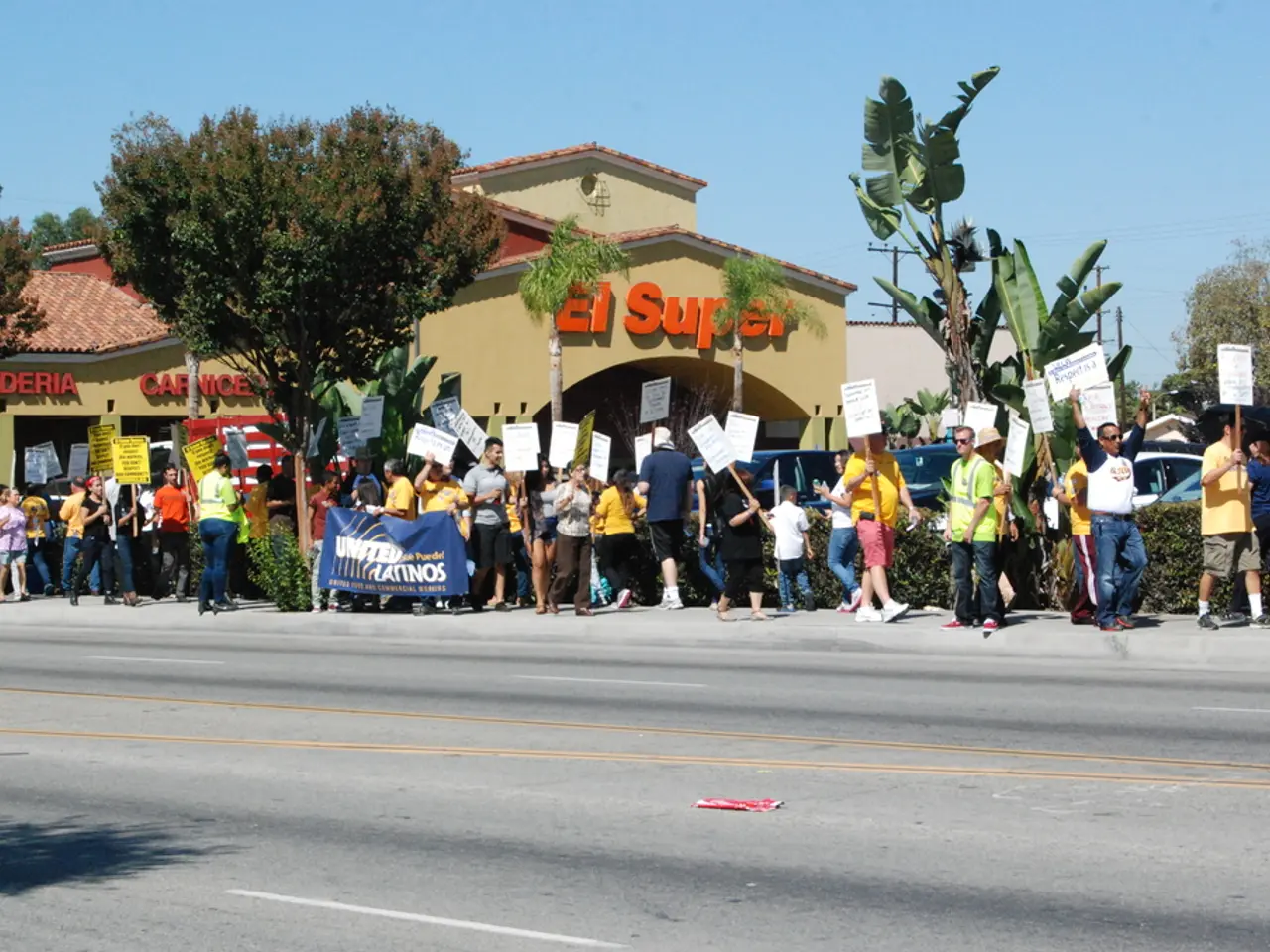Intense Battles Between Israel and Iran: Deaths, Damage, and Global Reaction
Israel undergoes assault from Iran, leaving eight dead and numerous injured.
The confrontation between Israel and Iran has been heating up recently, marking a noticeable spike in aggressive actions. Let's take a look at the main events that transpired:
Chronology
- September 27, 2024: An Israeli air raid kills Hezbollah's leader Hassan Nasrallah, although some sources haven't confirmed his demise[1][2]
- October 1, 2024: Iran retaliates with a second direct attack on Israel; most missiles are intercepted with the assistance of a multi-national coalition[1][2]
- October 16, 2024: Israel assassinates the Hamas leader Yahya Sinwar in the Gaza Strip[1][2]
- October 26, 2024: Israel, for the first time, publicly attacks Iran, targeting air defense systems and missile program sites[1][2]
- April 30, 2025: Iran executes a man suspected of working for Israel's Mossad and involvement in the killing of Revolutionary Guard Col. Hassan Sayyad Khodaei[1][2]
- June 13, 2025: Israel commences Operation Rising Lion, a large-scale attack on Iranian nuclear facilities and military sites, killing high-ranking military officials and nuclear scientists[3][4]
- June 14 and 15, 2025: Israel carries on airstrikes on Iran, including attacks on the energy sector, while Iran responds with missile and drone attacks[1][2]
Casualties
- Iran: The bombings have led to substantial casualties, including key military figures like Hossein Salami and Major General Mohammad Bagheri, as well as nuclear scientists Fereydoun Abbasi-Davani and Mohammad Mehdi Tehranchi. Civilian deaths have also been reported[4]
- Israel: Iranian missile attacks have struck buildings in central Israel, but precise casualty statistics aren't disclosed in the current reports[1][2]
International Reaction
- United States: The U.S. has applauded Israel's actions while denying any role in the strikes, though some speculate covert collaboration between Israel and the U.S.[3][4]
- World Community: The conflict has triggered broad criticism, with numerous nations urging de-escalation[4]
While diplomatic talks on Iran's nuclear program in Oman between the U.S. and Tehran were initially planned, they have been postponed due to the escalation of hostilities[1][2]
[1] ntv.de[2] rog/dpa/AFP[3] abcnews.go.com[4] bbc.com
- Despite the ongoing war-and-conflicts between Israel and Iran, several European countries have expressed concerns about the environment, fearing potential damage from the continuous bombings and military activities.
- The political landscape in Europe has shown a shift towards prioritizing the environment, with many leaders urging both Israel and Iran to consider the long-term effects of their actions on the general-news, including climate change and natural resources.
- In an unexpected turn of events, crime-and-justice cases have risen in Europe, as some accused individuals were reportedly involved in supplying weapons or intelligence to either Israel or Iran, leading to accidents and mishaps during operations.








